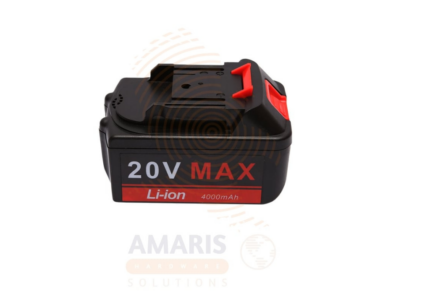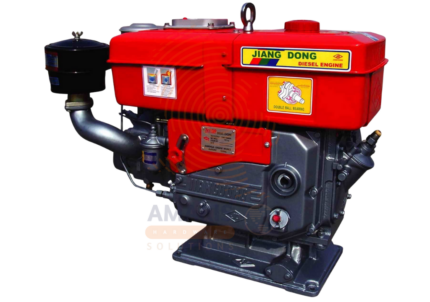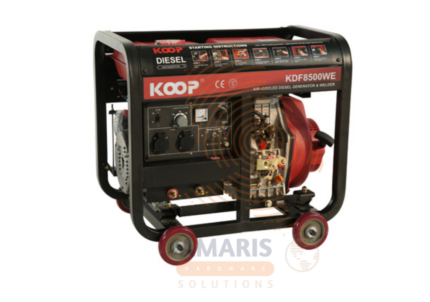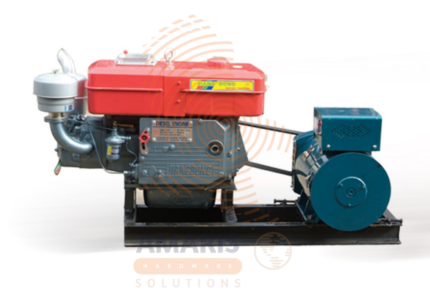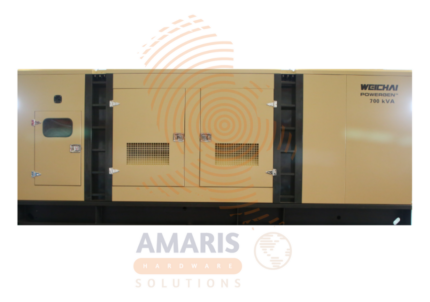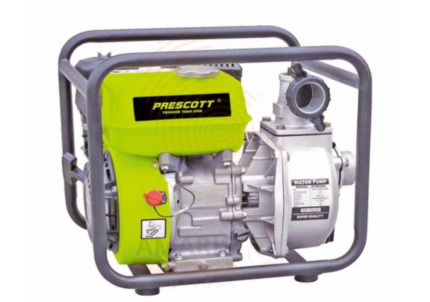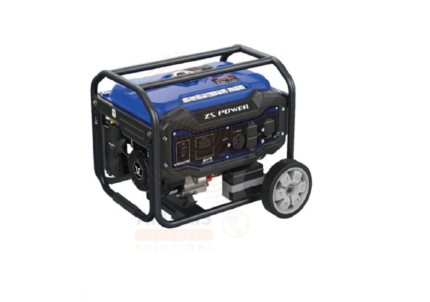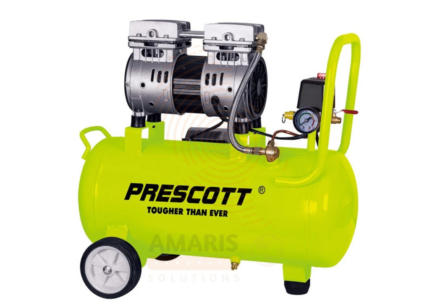

Diesel Generator(silent)
$1,203.85 Original price was: $1,203.85.$1,143.66Current price is: $1,143.66.
A Diesel Generator(silent), also known as a soundproof diesel genset, is a power generation unit designed to operate with minimal noise emissions. It incorporates acoustic insulation, vibration dampeners, and low-noise exhaust systems within a specially built enclosure or canopy. These generators deliver all the benefits of a traditional diesel generator—efficient power supply, durability, and reliability—while adhering to noise regulations, making them ideal for urban, residential, hospital, commercial, and noise-sensitive environments. Silent generators come in a range of power outputs and can be used for standby, prime, or continuous power applications.
Table of Contents
ToggleDiesel Generator(silent)
Uses
-
Residential Backup Power
-
Provides quiet, uninterrupted power during outages.
-
Powers lights, refrigerators, air conditioning, and other essential household systems.
-
-
Hospitals and Healthcare Facilities
-
Supplies emergency backup power for life-saving medical equipment.
-
Complies with noise control requirements for sensitive environments.
-
-
Offices and Commercial Buildings
-
Maintains business operations during power failures without disrupting the work environment.
-
Supports computers, security systems, elevators, and HVAC units.
-
-
Hotels and Hospitality Venues
-
Ensures continuous guest comfort by powering lighting, water pumps, and kitchen appliances.
-
Operates quietly to avoid disturbing guests or events.
-
-
Schools and Educational Institutions
-
Powers classrooms, labs, and administrative systems during grid failures.
-
Minimizes noise disruption during lectures and activities.
-
-
Telecommunication Towers & Data Centers
-
Keeps critical systems running to maintain network connectivity and data processing.
-
Prevents signal loss in remote or urban communication hubs.
-
-
Events and Outdoor Functions
-
Supplies silent power to concerts, weddings, and exhibitions.
-
Reduces noise pollution in temporary or public setups.
-
-
Construction Sites in Urban Areas
-
Powers equipment and tools while minimizing disturbance in residential or commercial neighborhoods.
-
Useful for night operations or restricted-noise zones.
-
-
Retail Stores and Supermarkets
-
Prevents product loss by maintaining refrigeration and lighting during outages.
-
Supports POS systems and security.
-
-
Government Buildings and Emergency Facilities
-
Keeps critical systems operational during emergencies.
-
Offers discreet operation during official or sensitive functions.
Safety Precautions
-
Wear Protective Gear
-
Use ear protection even with reduced noise levels, especially during servicing.
-
Wear gloves and steel-toe boots when handling the unit.
-
Use safety goggles to protect eyes during maintenance or fueling.
-
-
Proper Installation
-
Install on a level, stable surface in a well-ventilated outdoor area or generator room.
-
Ensure the enclosure’s air intakes and exhausts are unobstructed.
-
-
Ventilation and Exhaust Safety
-
Despite being enclosed, adequate airflow must be maintained to prevent overheating.
-
Ensure exhaust fumes are directed away from people and buildings to avoid carbon monoxide exposure.
-
-
Electrical Safety
-
Always use a properly rated automatic transfer switch (ATS) or manual switchgear.
-
Ensure proper grounding and bonding of the generator system.
-
Avoid contact with wet surfaces or operating in rain without a weatherproof cover.
-
-
Fuel Handling and Storage
-
Store diesel in certified containers, away from ignition sources.
-
Refuel only when the generator is turned off and has cooled down.
-
Avoid spills and wipe immediately if they occur.
-
-
Routine Inspection and Maintenance
-
Check for oil, fuel, or coolant leaks regularly.
-
Ensure the battery is charged and terminals are clean.
-
Monitor soundproof materials for wear or damage that could affect noise levels.
-
-
Noise Regulation Compliance
-
Ensure the generator complies with local noise regulations for silent operation.
-
Regularly inspect the acoustic enclosure for insulation integrity.
-
-
Load Management
-
Avoid overloading by knowing the generator’s rated capacity.
-
Use proper circuit protection and monitoring systems.
-
-
Emergency Preparedness
-
Know how to shut down the generator quickly in an emergency.
-
Keep a fire extinguisher nearby and train personnel on its use.
-
Familiarize all operators with emergency stop features and first aid locations.
-
-
Read the Manual & Training
-
Follow all operational and maintenance instructions provided by the manufacturer.
-
Ensure only trained personnel operate or service the generator.


 Acrylic Sealants
Acrylic Sealants Construction Adhesives
Construction Adhesives Double-Sided Tape
Double-Sided Tape Duct Tape
Duct Tape Electrical Tape
Electrical Tape Epoxy & Resins
Epoxy & Resins Masking Tape
Masking Tape
 Automotive Wrenches & Socket Sets
Automotive Wrenches & Socket Sets Battery Chargers & Jump Starters
Battery Chargers & Jump Starters Car Jacks & Stands
Car Jacks & Stands Car Wash & Detailing Products
Car Wash & Detailing Products Diagnostic Tools
Diagnostic Tools Tire Inflators
Tire Inflators Vehicle Lighting
Vehicle Lighting Oil & Lubricants
Oil & Lubricants
 Adhesives & Sealants
Adhesives & Sealants Bricks & Blocks
Bricks & Blocks Cement & Concrete
Cement & Concrete Drywall & Plaster
Drywall & Plaster Flooring (Tiles, Wood, Laminate)
Flooring (Tiles, Wood, Laminate) Lumber & Plywood
Lumber & Plywood Paints, Primers & Coatings
Paints, Primers & Coatings Insulation Materials
Insulation Materials Roofing Materials
Roofing Materials
 Circuit Breakers
Circuit Breakers Electrical Cables & Wires
Electrical Cables & Wires Switches & Sockets
Switches & Sockets Fuses & Relays
Fuses & Relays Connectors & Terminals
Connectors & Terminals Electrical Boxes & Panels
Electrical Boxes & Panels Conduit & Fittings
Conduit & Fittings Lighting Fixtures & Bulbs
Lighting Fixtures & Bulbs Extension Cords & Power Strips
Extension Cords & Power Strips
 Anchors
Anchors Bolts
Bolts Clips & Clamps
Clips & Clamps Screws
Screws Nuts
Nuts Washers
Washers Rivets
Rivets Nails
Nails Threaded Rods
Threaded Rods
 Hammers
Hammers Measuring Tools (Tapes, Levels, Calipers)
Measuring Tools (Tapes, Levels, Calipers) Screwdrivers
Screwdrivers Pliers & Cutters
Pliers & Cutters Saws & Blades
Saws & Blades Chisels & Punches
Chisels & Punches Allen Keys & Hex Keys
Allen Keys & Hex Keys Ratchets & Socket Sets
Ratchets & Socket Sets Wrenches & Spanners
Wrenches & Spanners
 Power Tool Accessories (Blades, Bits, Discs)
Power Tool Accessories (Blades, Bits, Discs) Rotary Tools
Rotary Tools Saws (Circular, Jigsaw, Reciprocating)
Saws (Circular, Jigsaw, Reciprocating) Drills & Drivers
Drills & Drivers Grinders & Sanders
Grinders & Sanders Heat Guns
Heat Guns Nail Guns
Nail Guns Impact Wrenches
Impact Wrenches Batteries & Chargers
Batteries & Chargers
 Pipes & Fittings (PVC, Copper, PEX)
Pipes & Fittings (PVC, Copper, PEX) Plumbing Tools
Plumbing Tools Pumps & Motors
Pumps & Motors Sealants & Adhesives for Plumbing
Sealants & Adhesives for Plumbing Valves & Taps
Valves & Taps Water Heaters
Water Heaters Drainage Systems
Drainage Systems Faucets & Fixtures
Faucets & Fixtures Hoses & Tubing
Hoses & Tubing
 Hinges & Latches
Hinges & Latches Hooks & Brackets
Hooks & Brackets Window Hardware
Window Hardware Chains & Cables
Chains & Cables Casters & Wheels
Casters & Wheels Shelving & Storage Systems
Shelving & Storage Systems Door Handles & Locks
Door Handles & Locks Drawer Slides & Cabinet Hardware
Drawer Slides & Cabinet Hardware
 Personal Protective Equipment (PPE)
Personal Protective Equipment (PPE) Respirators & Masks
Respirators & Masks Safety Glasses
Safety Glasses Safes
Safes Security Cameras
Security Cameras Gloves
Gloves Helmets
Helmets Ear Protection
Ear Protection Fire Safety Equipment
Fire Safety Equipment Locks & Padlocks
Locks & Padlocks Motion Sensors & Alarms
Motion Sensors & Alarms
 Garden Fencing
Garden Fencing Garden Furniture Hardware
Garden Furniture Hardware Lawn Mowers
Lawn Mowers Trimmers & Edgers
Trimmers & Edgers Shovels & Spades
Shovels & Spades Rakes & Hoes
Rakes & Hoes Pruning Shears & Loppers
Pruning Shears & Loppers Watering Systems (Hoses, Sprinklers, Nozzles)
Watering Systems (Hoses, Sprinklers, Nozzles)
 Interior Paints
Interior Paints Paint Brushes & Rollers
Paint Brushes & Rollers Paint Strippers & Thinners
Paint Strippers & Thinners Paint Trays & Accessories
Paint Trays & Accessories Exterior Paints
Exterior Paints Spray Paints
Spray Paints Primers & Undercoats
Primers & Undercoats Varnishes & Stains
Varnishes & Stains
 Gaskets & Seals
Gaskets & Seals Hydraulic Fittings
Hydraulic Fittings Industrial Fasteners
Industrial Fasteners Industrial Hoses
Industrial Hoses Lubricants & Greases
Lubricants & Greases Metal Sheets & Bars
Metal Sheets & Bars Bearings & Bushings
Bearings & Bushings Belts & Pulleys
Belts & Pulleys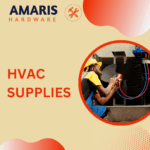
 HVAC Filters
HVAC Filters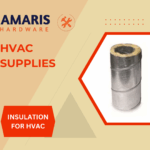 Insulation for HVAC
Insulation for HVAC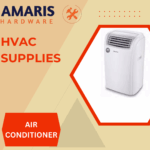 Air Conditioners
Air Conditioners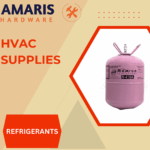 Refrigerants
Refrigerants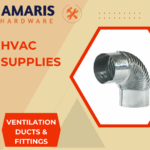 Ventilation Ducts & Fittings
Ventilation Ducts & Fittings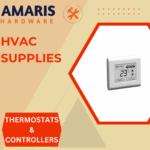 Thermostats & Controllers
Thermostats & Controllers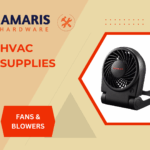 Fans & Blowers
Fans & Blowers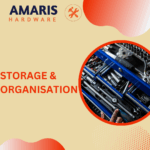
 Pegboards & Hooks
Pegboards & Hooks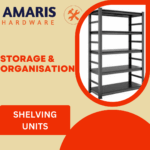 Shelving Units
Shelving Units Storage Bins & Containers
Storage Bins & Containers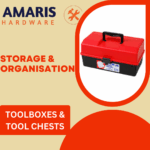 Toolboxes & Tool Chests
Toolboxes & Tool Chests Workbenches
Workbenches Drawer Organizers
Drawer Organizers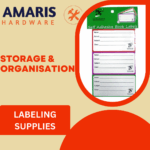 Labeling Supplies
Labeling Supplies
 Welding Accessories (Clamps, Brushes)
Welding Accessories (Clamps, Brushes) Welding Electrodes & Rods
Welding Electrodes & Rods Welding Helmets & Gloves
Welding Helmets & Gloves Welding Machines
Welding Machines Soldering Irons & Stations
Soldering Irons & Stations Flux & Solder Wire
Flux & Solder Wire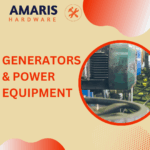
 Generator Accessories
Generator Accessories Inverters
Inverters Portable Generators
Portable Generators Power Inverters
Power Inverters Transfer Switches
Transfer Switches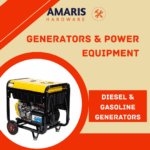 Diesel & Gasoline Generators
Diesel & Gasoline Generators
 Transport Equipment: Carts, Dollies, and Hand Trucks
Transport Equipment: Carts, Dollies, and Hand Trucks Storage Solutions: Pallets, Racks, and Containers
Storage Solutions: Pallets, Racks, and Containers Lifting Equipment: Hoists, Cranes, and Jacks
Lifting Equipment: Hoists, Cranes, and Jacks Conveyors & Accessories: Belts & Rollers
Conveyors & Accessories: Belts & Rollers
 Office Chairs
Office Chairs
